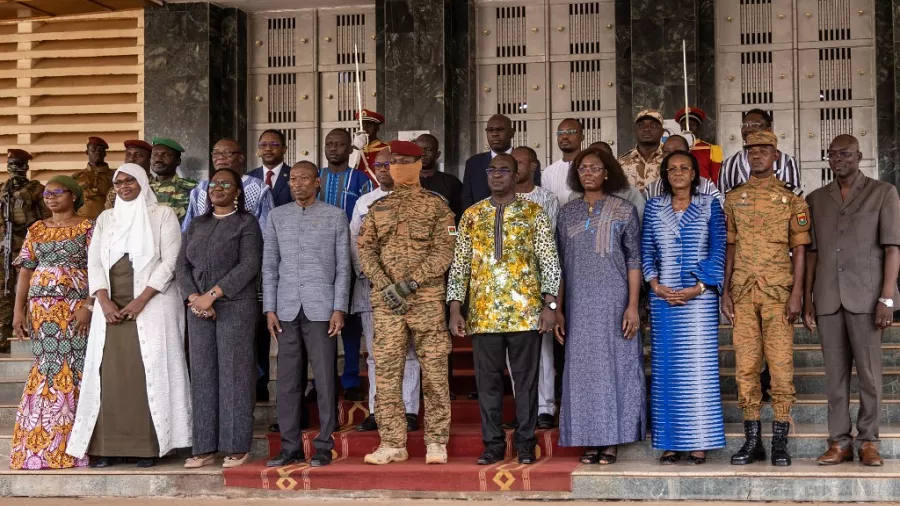
Burkina Faso’s Council of Ministers convened on Thursday under the presidency of Captain Ibrahim Traoré, President of the Faso, to deliberate on a wide-ranging agenda covering government reforms, financial measures, and key appointments.
The meeting, held from 09:00 to 12:12, saw the adoption of multiple decrees aimed at strengthening governance, public administration, and economic development.
Among the most notable decisions, the Council approved the dissolution of the National Coordination Centre for the Early Warning and Response Mechanism (CN-CMAPR) and the Strategic Steering Council of the Presidential Initiative “Ensuring Every School-Age Child Receives at Least One Balanced Meal per Day.”
The CN-CMAPR, created in December 2021 to provide early security alerts within the ECOWAS framework, is being dissolved following Burkina Faso’s withdrawal from the regional bloc.
Similarly, the Presidential Initiative’s governance council will transfer operational responsibilities to the Ministry of Basic Education, Literacy, and Promotion of National Languages, streamlining institutional structures.
The Council also authorised modifications to the mixed-economy company Textile des Forces du Burkina Faso (TEXFORCES-BF), including a capital injection of 7 billion CFA francs from the national hydrocarbon company SONABHY, ensuring the company’s operational viability.
In the economic and financial sector, the government approved the 2026 State Budget, projecting revenues of 3,431.5 billion CFA francs against expenditures of 3,918.3 billion CFA francs, resulting in a deficit of 486.8 billion CFA francs, equivalent to 2.6% of GDP.
In a move to enhance transparency, NGOs and approved associations are now required to hold all operational accounts exclusively with the Treasury Deposits Bank, facilitating better monitoring of funds and compliance with anti-money laundering standards.
Additionally, reforms were approved to streamline judicial revenue collection, secure the status of permanent residents for foreigners, and regulate agro-sylvo-pastoral product prices, including guaranteed minimum prices and regulated sales.
The Council also endorsed the nomination of Saad Misfer Ahmed ALMIMONI as Saudi Arabia’s Ambassador to Burkina Faso and announced multiple appointments across ministries, including senior positions in finance, justice, higher education, and penitentiary administration.
New leadership was confirmed for key state enterprises such as the Société nouvelle Brasseries du Faso (SN-BRAFASO), the School of Logistics in Ouagadougou (ISLO), and the Société sucrière de la Comoé (SOSUCO).
During the session, ministers highlighted achievements in public health, including a successful seasonal malaria chemoprevention campaign covering nearly five million children, as well as educational reforms and upcoming events such as the 15th National Forum on Scientific Research and Technological Innovation.
The meeting underscores Burkina Faso’s focus on institutional reform, economic development, and social welfare, reflecting a broad strategy to strengthen governance, ensure food security, and promote sustainable development across the country.



